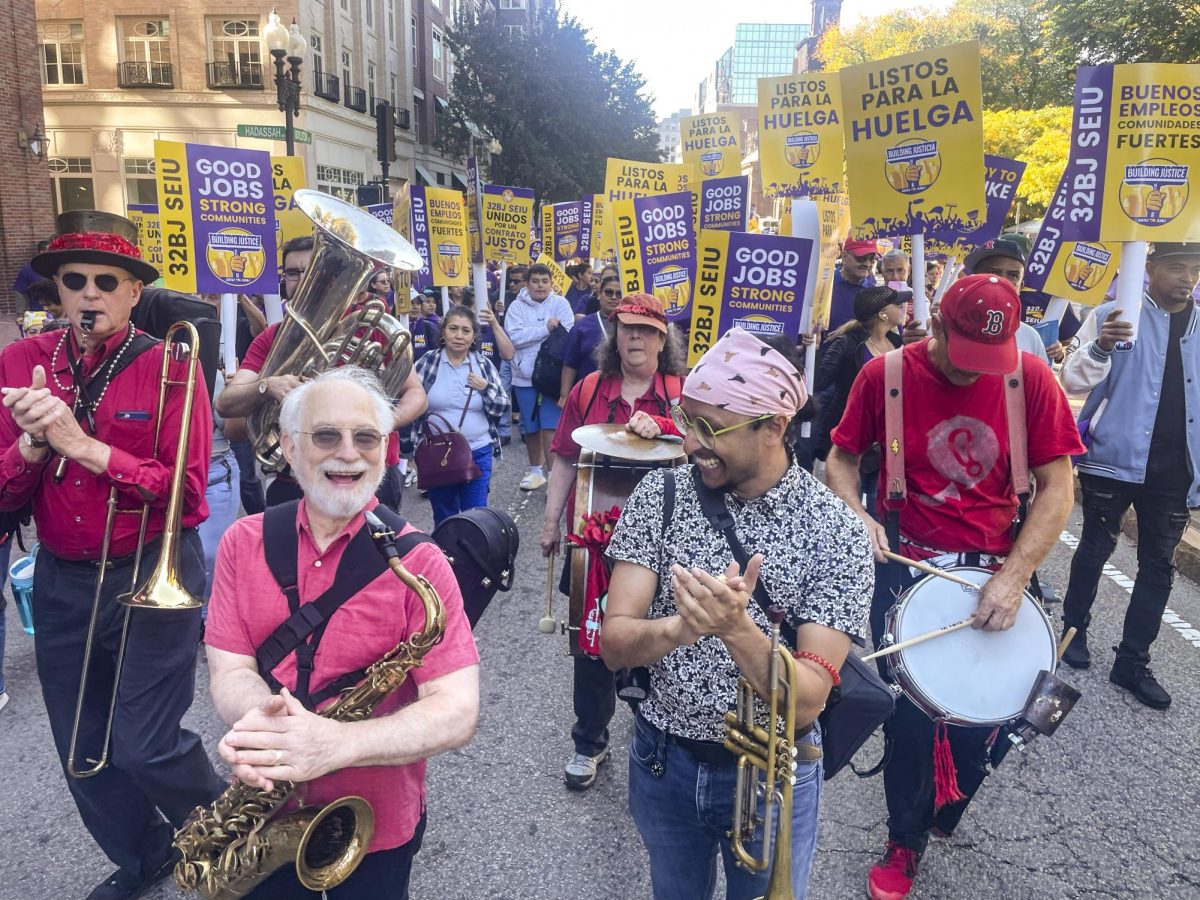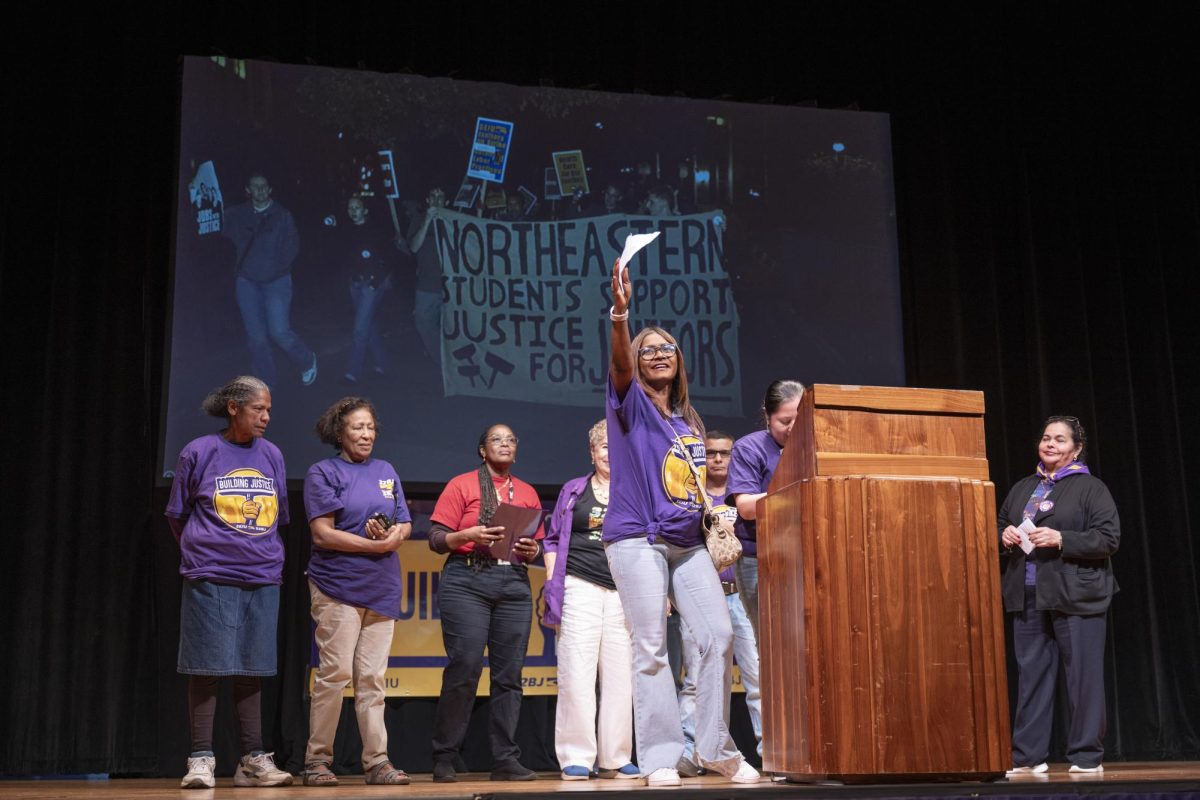About 330 janitorial workers who clean Northeastern facilities could go on strike in mid-November following a Saturday strike authorization vote by members of a union representing thousands of cleaners locally and across the United States.
In a Back Bay auditorium Oct. 28, 500 janitorial workers represented by Local 32BJ of the Service Employees International Union, or SEIU, voted to authorize a strike if a tentative agreement isn’t reached on a new contract with the Maintenance Contractors of New England by midnight Nov. 15.
Members of the union clean around 1,500 buildings across Massachusetts and Rhode Island, including Northeastern’s facilities, according to a Local 32BJ press release Saturday evening. All 500 workers in attendance voted “yes” to call a strike, granting strike authorization for potentially up to 12,000 janitorial workers.
Around 330 janitors at Northeastern are members of Local 32BJ, according to Franklin Soults, a spokesperson for the union – 200 are contracted to work for the school through ABM, a commercial janitorial contracting company, and roughly 130 other janitors are contracted through various other companies, Soults said.

“I’ve been working [at Northeastern] since the day I arrived from the Dominican Republic many years ago,” university janitor Juan Santana said in a statement, according to the press release. “It’s a good job but a difficult one — especially during the pandemic. As cleaners, we took huge risks … we were asked to clean the areas where students with the COVID virus were isolated. Because of incidents like that, many of my [part-time] coworkers became painfully aware of the reality of not having health insurance, as some contracted the COVID virus and ended up hospitalized for months.”
Local 32BJ is the largest building service workers union in the United States and represents up to 90% of commercial building cleaners in Massachusetts and Rhode Island, according to a statement from the union. Union members are also responsible for cleaning upwards of 90% of commercial buildings in Boston, which include MBTA stations, the Prudential Center and Berklee College of Music.
In their new contract, union members are demanding “a strong salary increase, more opportunity to work full-time, improvements in vacation and paid time off, guaranteed seniority rules and rules governing changes in contractors,” Local 32BJ bargaining committee member and biotechnology company cleaner Marlen Salgado told the audience before the vote, according to the press release. He said the current increase offered by employers is “far too low” amid record-high inflation.
“During the pandemic, the bosses went home while we stayed and worked, the first line of defense against the virus in the buildings,” bargaining committee member Ana Gonzalez, who cleans in a Park Plaza office building, said in the press release. “And the price for our vigilance was enormous. Who among us has not lost a family member or other loved one to the virus? …Two hundred 32BJ members died during the pandemic…We deserve wages and working conditions that honor our worth!”
As of September 2023, the average yearly income for a janitor in Boston is $38,495, according to Salary.com. Recently, building cleaners represented by SEIU in Philadelphia and Washington D.C. won historic raises and benefits. In Philadelphia, workers’ new four-year contract included an 18.6% wage increase without cuts to workers’ hours, an additional paid holiday for Juneteenth, strengthened protections for pregnant workers and expanded dental coverage. In Washington D.C., the union won 19% to 30% wage increases for workers in the city and neighboring counties in Maryland and Virginia.
Now, janitorial workers in Boston, including those who work at Northeastern, have agreed to strike if similar terms are not agreed upon before midnight Nov. 15
“Security officers like me work side by side with office cleaners,” said 32BJ member Barbie Jo Graham, according to the press release. “Both jobs tend to be invisible until they’re not being done. What many people also don’t realize is there’s no such thing as ‘unskilled labor.’ Workers get to know their buildings over years, and we deserve contracts that can allow us to stay on the job.”












